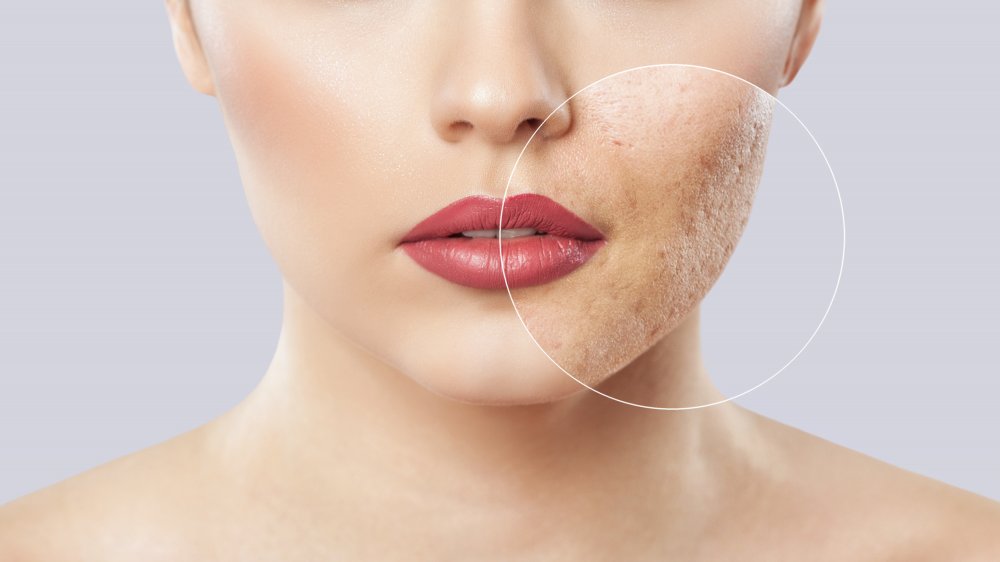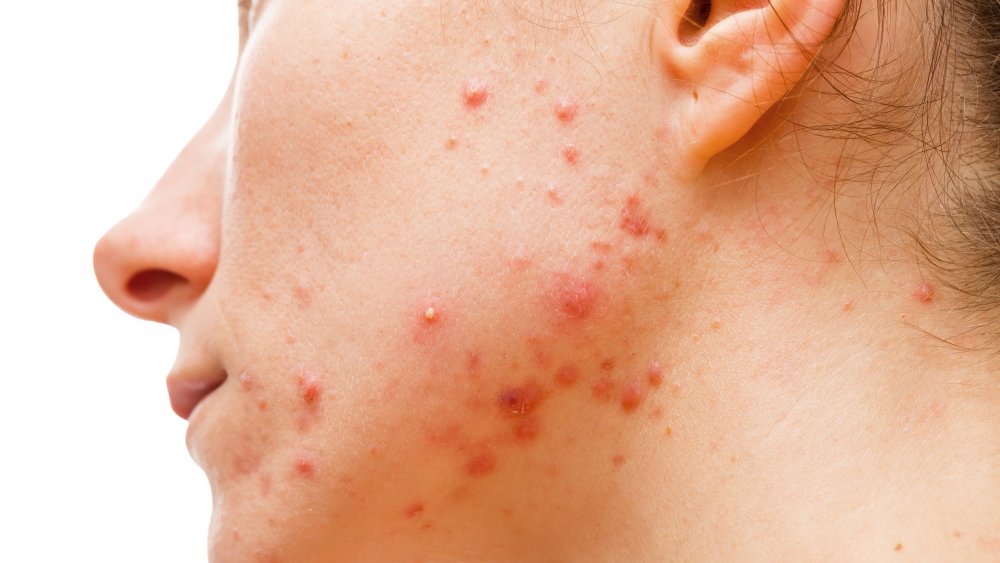What Is Cystic Acne And What Causes It?
For some, there's nothing worse than getting a pimple smack bang in the middle of your face. But for cystic acne sufferers, that's the kind of skin problem they could only dream about. And we can understand why. Often found in clusters, "cystic acne creates the most frustrating type of inflammatory blemishes because they last the longest and can cause long-term scarring," celebrity aesthetician and skin expert Renée Rouleau told Shape. But what exactly is cystic acne and, more importantly, what causes it?
Joshua Zeichner, director of cosmetic and clinical research at Mount Sinai Medical Center in New York City, defines cystic acne as "tender, inflammatory nodules underneath the skin" (via Allure). They are also often referred to as blind pimples. "A blind pimple develops from a combination of oil, bacteria, and dirt that gets trapped in the pore," Debra Jaliman, MD, and spokesperson for American Academy of Dermatology's told Insider. "It will look like a lump under the skin," she continued.
Cystic acne can be caused by genetics, hormones, and bacteria
Many people believe cystic acne is bacterial but beyond trapped oil, bacteria, and dirt in your pores, there are various other reasons you may suffer from it. Put simply, "For some people it's genetic, for others it's hormonal, and some people are just acne-prone," Nada Elbuluk, associate professor of dermatology at the University of Southern California Keck School of Medicine, told VICE. While genetics and skin type are self-explanatory, hormonal acne is more difficult to understand. As Rouleau explained to Shape, "Cysts are typically triggered by a surge of hormones, which is why they commonly occur around a woman's menstrual cycle." She continued, "During this time, the skin's oil glands become hypersensitive to the hormone surge and react by overproducing sebum."
Like the causes, treatment of cystic acne varies on a case by case basis. If you've had acne that lasts up to four weeks without surfacing, book an appointment with your local GP and discuss your options.

